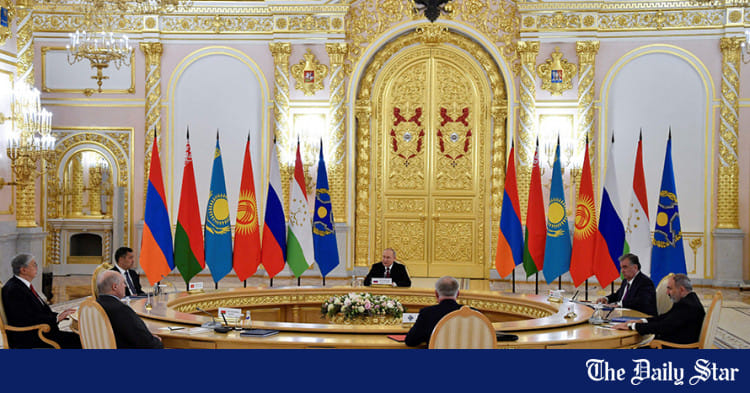- Copy to clipboard
- Thread starter
- #166
Saif
Senior Member
- Messages
- 14,237
- Reaction score
- 7,473
- Origin

- Residence

- Axis Group


Russia advanced 4,000 sq km in Ukraine in 2024
Russian forces advanced by 3,985 square kilometres in Ukraine in 2024, seven times more than in 2023, according to an AFP analysis of data from the US-based Institute for the Study of War.
 www.newagebd.net
www.newagebd.net
Russia advanced 4,000 sq km in Ukraine in 2024
Agence France-Presse . Paris 01 January, 2025, 01:00
Russian forces advanced by 3,985 square kilometres in Ukraine in 2024, seven times more than in 2023, according to an AFP analysis of data from the US-based Institute for the Study of War.
Much of the Russian gains came in the autumn, as they took 610 square kilometres in October and 725 square kilometres in November. Those two months saw the Russians conquer the most territory since March 2022, in the early weeks of the conflict.
The Russian advance slowed in December, coming to 465 square kilometres in the first 30 days of the month.
However it is already nearly four times bigger than in the same month of the previous year and two and a half times more than in December 2022.
Nearly three quarters of the territory taken by the Russians in Ukraine in 2024 was in the eastern region of Donetsk, which includes Pokrovsk, an Ukrainian logistical hub.
Russia now controls or is operating in 70 per cent of the region, against 59 per cent at the end of 2023.
The Russian advance accelerated in August 2024, with nearly 400 square kilometres taken over the month, reaching a gain of 629 square kilometres in November.
2024 was also marked by a major Ukrainian offensive in the Russian region of Kursk which started in July.
Ukrainian advances peaked on August 20-21, extending over some 1,320 square kilometres. The area of operations had been reduced to 482 square kilometres by December 30.
Agence France-Presse . Paris 01 January, 2025, 01:00
Russian forces advanced by 3,985 square kilometres in Ukraine in 2024, seven times more than in 2023, according to an AFP analysis of data from the US-based Institute for the Study of War.
Much of the Russian gains came in the autumn, as they took 610 square kilometres in October and 725 square kilometres in November. Those two months saw the Russians conquer the most territory since March 2022, in the early weeks of the conflict.
The Russian advance slowed in December, coming to 465 square kilometres in the first 30 days of the month.
However it is already nearly four times bigger than in the same month of the previous year and two and a half times more than in December 2022.
Nearly three quarters of the territory taken by the Russians in Ukraine in 2024 was in the eastern region of Donetsk, which includes Pokrovsk, an Ukrainian logistical hub.
Russia now controls or is operating in 70 per cent of the region, against 59 per cent at the end of 2023.
The Russian advance accelerated in August 2024, with nearly 400 square kilometres taken over the month, reaching a gain of 629 square kilometres in November.
2024 was also marked by a major Ukrainian offensive in the Russian region of Kursk which started in July.
Ukrainian advances peaked on August 20-21, extending over some 1,320 square kilometres. The area of operations had been reduced to 482 square kilometres by December 30.












